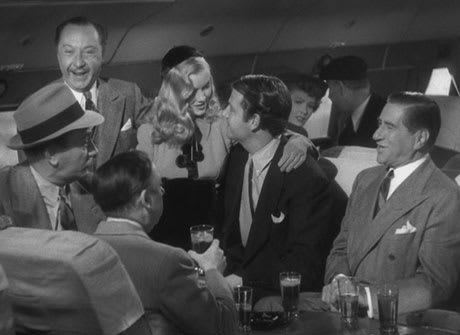In the way we think about the term today, writer/director Preston Sturges was the first modern auteur, beating Orson Welles to the box-office by a couple months or so. Yet while Welles seemed like a man out of time with his revolutionary Citizen Kane, Sturges fit right in to the Hollywood mould, earning both critical and popular success with his two very contemporary 1941 comedies: The Lady Eve and Sullivan's Travels. Both men began in the theatre and while Welles's transition to the big screen was rapid, Sturges cut his teeth as a scriptwriter for ten years, honing the precisely pitched bon mots of the '30s talkies before jumping behind the camera. For some different reasons (Welles ran afoul of studio politics, Sturges simply seemed to run out of ideas) and some similar (stubbornness), both men had disappointingly brief careers as directors. Some may balk at comparing Sturges and Welles; Sturges made comedies after all, brilliant though they may be, but comedies nonetheless, full of pratfalls, goofy double-entendres, outrageous situations and a bit of sex. Sturges's hero in Sullivan's Travels, big shot director John L. Sullivan (Joel McCrea), feels similar, caught up in an artistic malaise because his highly entertaining moneymaking blockbusters lack redeeming social value. So Sully sets out across America with ten cents in his pocket, mixing with the tramps and hooking up with a failed actress (Veronica Lake) along the way. Too quick-witted to be merely satisfied with a simple road movie, Sturges has Sullivan try and fail numerous times with his "noble experiment." Eventually satisfied, Sullivan ventures out among the disenfranchised distributing five-dollar bills, wherein the film takes a truly unexpected turn. Sturges wasn't simply a wordsmith but a gifted visual stylist as well, and his remarkable touch with tonal shifts was never more in evidence than here. The film is witty and literate one moment, careens into anarchic physical comedy the next and manages to be absolutely heart breaking as it reaches its climax. This new Universal anniversary edition marks a number of DVD reissues by the studio to celebrate its centenary. Unlike the still available Criterion edition, there are no extras related to the film, just two brief documentaries on former studio heads Carl Laemmle and Lew Wasserman. Regardless, any way you see this film is fine, as long as you see it.
(Universal)Sullivan's Travels
Preston Sturges

BY Bjorn OlsonPublished Mar 20, 2012